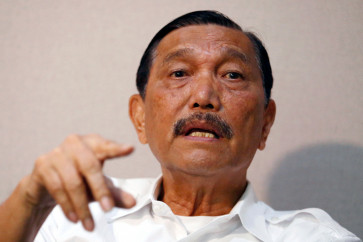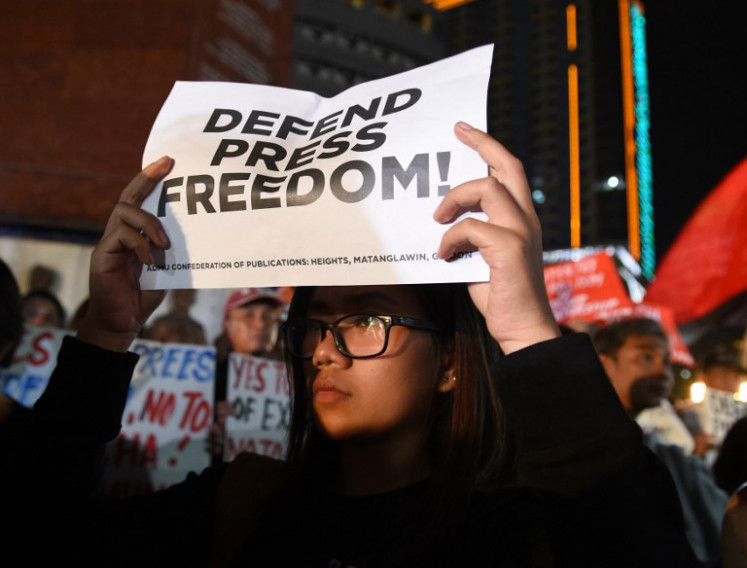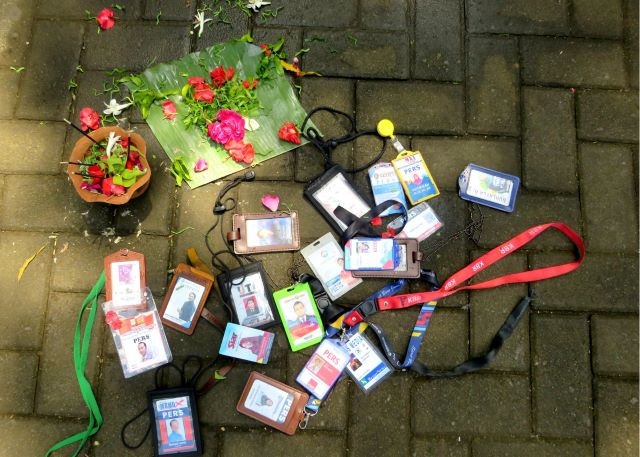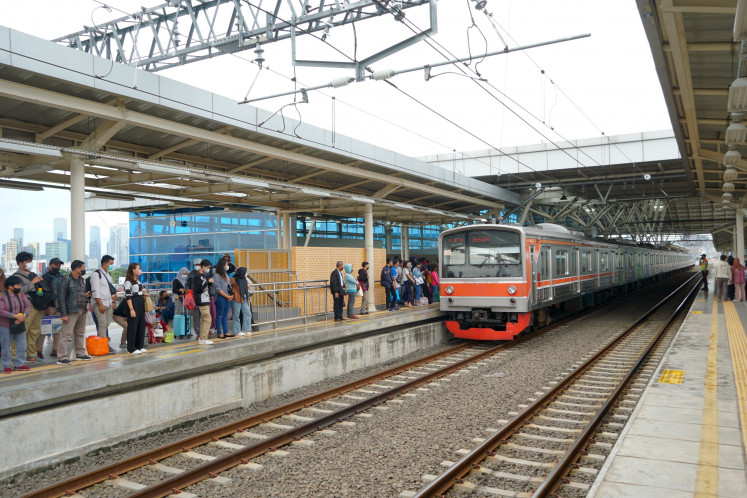Our envoy in Washington
It is an irony that a key player in the Dili mayhem of 1999 is going to be the new Indonesian ambassador to the US in Washington, DC
Change Size

It is an irony that a key player in the Dili mayhem of 1999 is going to be the new Indonesian ambassador to the US in Washington, DC.
Eleven years ago, on Sept. 6, 1999, I was lucky to have taken the seat of a good friend, Prof. Herbert Feith, on a Merpati flight from the East Timor capital of Dili to Denpasar.
I was safe and free from the rampaging Indonesian army and the militia in Dili, which had begun just two days earlier. Pak Herb, thanks to his own sources, had known what was going to happen and had left Dili days earlier.
Many, though, were not that lucky. Around 1,500 Dili residents were slaughtered, a few escaped, and journalist Agus Muliawan, along with six Catholic sisters, were brutally murdered near Los Palos as Battalion 745 went on a rampage on its way home.
East Timorese will never forget the tragedy of September 1999 — despite the truth and friendship agreement that the Jakarta and Dili governments signed in an attempt to close that chapter of history three years ago.
Indeed, to this very day, many East Timorese families are still living in poverty and misery in ex-UN camps in West Timor, so long after hundreds of thousands of their compatriots were forced to move there.
Human rights atrocities should be revealed, brought to justice and serve as lessons. But what lessons can the public take from a case that was never brought to justice and instead prematurely closed for the sake of peaceful relations between the two states?
A year ago, on the 10th anniversary of the East Timor referendum, President Jose Ramos-Horta rejected the possibility of an international tribunal, but at the same time stressed the moral responsibilities of Timor Leste and Indonesia to pursue justice in their own way.
Nothing — except efforts to compensate some victims — has happened since.
Mysteries thus remain: Why did some Indonesians return home just before the Dili violence began on Sept. 4? Who gave instructions for them to return home? Why did this information only circulate among a few Indonesians in Dili? Was it indeed the original “Plan B” of the Army to run amok in East Timor immediately after the negative plebiscite outcome was announced on Sept. 4?
Indonesian correspondents based at the military headquarters in Cilangkap were quick to order their reporters in Dili to return home. But they never revealed who informed them to do so and why.
Interestingly though, it was not only the job of the KPS (Commission on Peace and Stability) to
help control and report on peace and stability in the region, but also that of the state liaison officers, whose role, given the tensions, was even more crucial — to inform and warn the public of the possibility
of violence.
A few days before the vote, I saw the KPS mission — Koesparmono Irsan, Djoko Soegijanto, B.S. Marbun of then National Commission of Human Rights — and legal expert Benyamin Mangkoedilaga relaxing at their villa on a beach in Dili. I also saw the liaison officers — Gen. Zacky Anwar Makarim and Foreign Ministry’s staff Dino Patti Djalal.
However, when the announcement of the plebiscite drew near amid increasing tensions and confusion, all one could notice was the conspicuous absence of those very officials — the KPS and the liaisons officers — who could have informed us about the approaching violence they might already know was coming.
After all, their task was to maintain security in the area according to the New York Agreement of May 5, 1999.
Years later, as the CTF sessions went on in 2007, I had the chance to meet with Benyamin Mangkoedilaga and ask him a question that had been disturbing me for sometime: Where were you, the KPS, when the Army ran amok in Dili?
Let us recall that by then, Sept. 4, 1999, the UNAMET (UN Assistance Mission for East Timor) staff had already been taken hostage by the Army’s militia. Benyamin replied that he left Dili on Sept. 3, and that his KPS colleagues along with Dino Patti Djalal had departed on Sept. 1. “What could we do? We were instructed by the military authorities to leave the country.” Benyamin explained.
Benyamin’s reply is particularly important for several reasons.
It is the first ever acknowledgment that the military was fully aware of the carnage that was about to happen, but did nothing except warn Jakarta officials and select journalists.
This, indeed, implies that the military headquarter probably might have planned the mayhem.
Second, it indicates not only that the KPS did not complete its job, but simply released itself from its responsibility by leaving Dili before the turmoil began, despite presumably knowing what was coming.
Third, in doing so, both the KPS and the liaison officers have in fact ignored Jakarta’s responsibility to uphold public security during the vote, including for the UNAMET.
We can compare this to a similar breach of security during the Bosnia Muslim killings in 1995 which resulted in an international row.
In fact, it was only a fortnight after Jakarta insisted at the UN to be entrusted with organizing security in Dili during the vote (New York, May 5, 1999) that it was decided (Presidential Decree/Keppres No. 43, May 18, 1999) that the whole security arrangement for the East Timor vote was to be organized by a special committee called the Satgas P3TT (Task Force for the Implementation of the Popular Consultation in East Timor), led by then coordinating minister for politics and security Gen. Feisal Tanjung.
It was Satgas P3TT who planned and was responsible for the security during the UN-organized vote
Our man in Dili has become our man in Washington, DC: Ambassador Dino Patti Djalal — a seasoned diplomat with extensive experience in security matters, including in East Timor — the very place where the atrocities occurred that led the US Senate to impose the first-ever sanctions on the Indonesian military.
President Barack Obama, who has shown serious interests in human rights in Indonesia, will have the rare opportunity to hear about Indonesia’s role and experience in organizing a bloody amok resulting in hundreds of deaths and intimidated a UN delegation from Ambassador Dino.
Let’s hope, to say the least, even though I very much doubt it, that he’ll get a more complete story.
The writer is a journalist.









